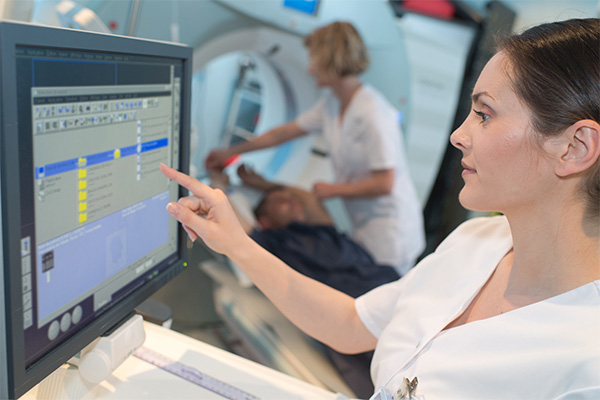
Get a Clear Picture of Your Future with a CT Technologist Certificate
The computed tomography (CT) certificate of specialization (CS) at St. Louis Community College prepares imaging professionals to earn CT credentials and take the next step in their medical imaging careers. This program is designed for radiographers, nuclear medicine technologists and radiation therapists who want specialized CT training. Students develop practical skills in cross-sectional anatomy, CT physics and instrumentation, radiation safety and patient care in imaging.
You can complete the program in just two semesters, or less than one year, giving you a clear and focused path to certification. Graduates are eligible to take the post-primary CT registry examination through the American Registry of Radiologic Technologists (ARRT).
What is Computed Tomography at St. Louis Community College?
Computed tomography is a medical imaging technology that uses X-rays to produce detailed, cross-sectional images of the body. These images help physicians detect, diagnose and monitor conditions in the brain, spine, chest, abdomen, pelvis and limbs.
STLCC’s CT imaging program teaches students how to operate CT scanners, follow safety protocols, optimize image quality and provide excellent patient care.
Students complete CT clinical rotations at hospitals and imaging centers across St. Louis, gaining real-world experience in performing diagnostic procedures, patient positioning and image evaluation. Students who already perform CT in their current roles can apply prior experience to meet program requirements. Practice with hybrid imaging equipment and instruction in diagnostic imaging procedures ensures graduates are fully prepared for registry exams and clinical work.
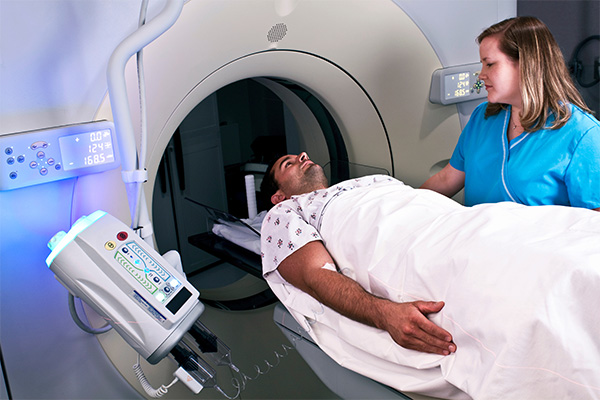

What Can You Do with a CT Certificate?
With a computed tomography certificate, graduates can work as registered CT technologists, operating CT and hybrid imaging equipment, performing diagnostic imaging procedures and providing essential information that supports patient care decisions. Technologists work with patients of all ages and collaborate with health care teams in hospitals, outpatient imaging centers and other medical facilities.
The program also prepares students for continued growth, including advanced imaging certification or additional health care education. Many graduates use the certificate as a foundation to:
- Expand their skills in CT and other imaging modalities
- Pursue leadership or advanced clinical roles
- Take on specialized certifications in advanced imaging
- Explore career opportunities in health care imaging training across St. Louis
CS in Computed Tomography
- Degree offered: Certificate of specialization
- Locations: Wildwood
- Hours to complete: 18
- Program contact name: Austin Turner, PhD, CNMT, PET, RT(MR)(CT), MRSO, CCRC
- Program contact email: ctprogram@stlcc.edu
Tuition for district residents is $122 per credit hour for in-district students. Find out more about our straightforward and low-cost tuition structure.
Additional student expenses include criminal background check, five panel drug screen, physical exam and immunization record or titers, purified protein derivative (PPD) skin test and current American Heart Association Basic Life Support for Healthcare Providers (CPR card).
Admission Requirements
The CT certificate of specialization is designed for graduates of an associate degree radiologic science program and registered radiologic technologist, nuclear medicine technologist or radiation therapist entering the field of computed tomography.
Prerequisites for CT certificate program:
- Must be a registered radiologic technologist with ARRT RT(R), a registered nuclear medicine technologist with ARRT RT(N) or NMTCB (CNMT), or a registered radiation therapist with ARRT RT(T) credential.
Why You Should Choose STLCC's CT Program
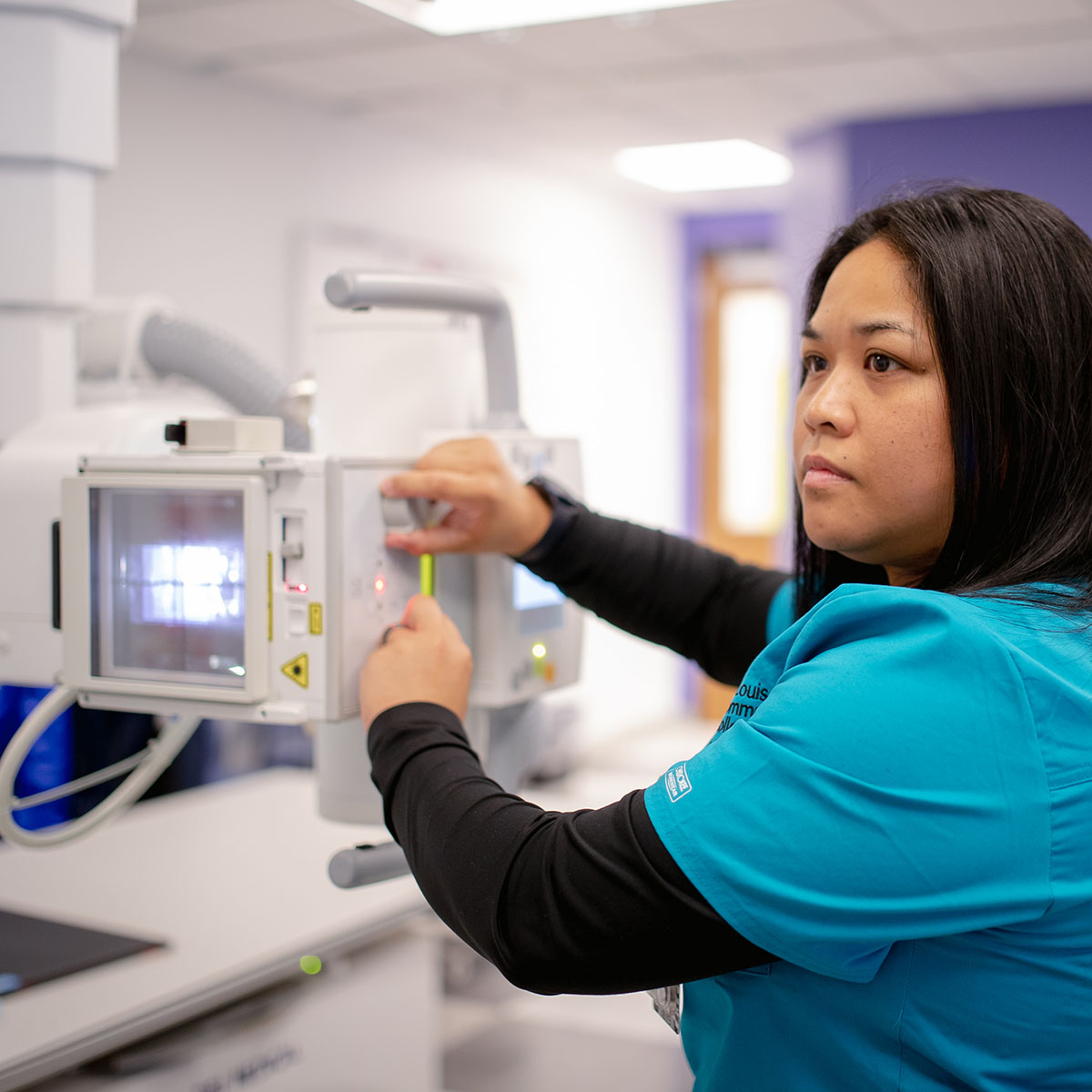
Ramp Up High-Wage Skills
STLCC offers career-focused programs for high-wage, high-skill and in-demand jobs. STLCC provides opportunities for college transfers, career development and workforce training.
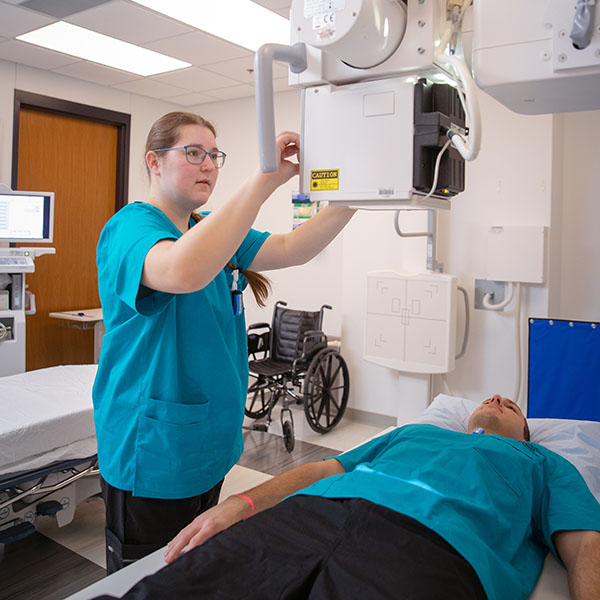
Build Skills You Need With Stackable Credentials
Stackable credentials help students level up career opportunities without investing a large amount of time and resources. Students can stack or assemble a series of traditional and nontraditional credentials including degrees, certificates, apprenticeships and more.
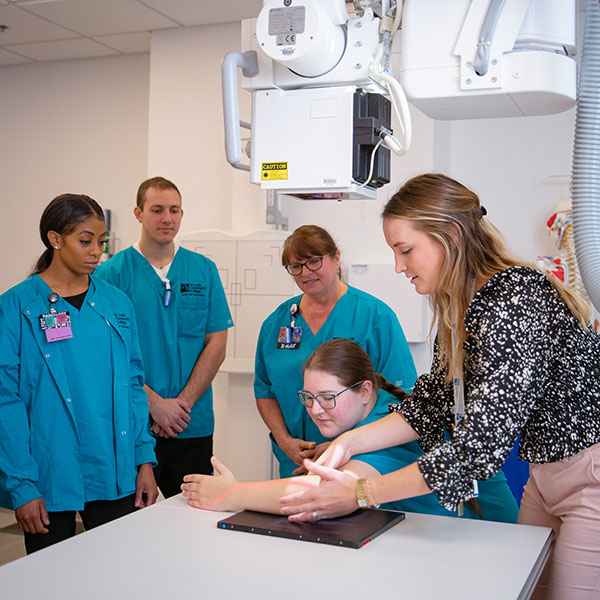
Caring for Students
STLCC goes beyond academics with support services, ranging from stress and anxiety management to grants for childcare, emergency crisis support, clothing and free meals through Archers' Market and Brown Bag Cafe food pantry. We offer free tutoring on campus or online.
STLCC. What's your reason?